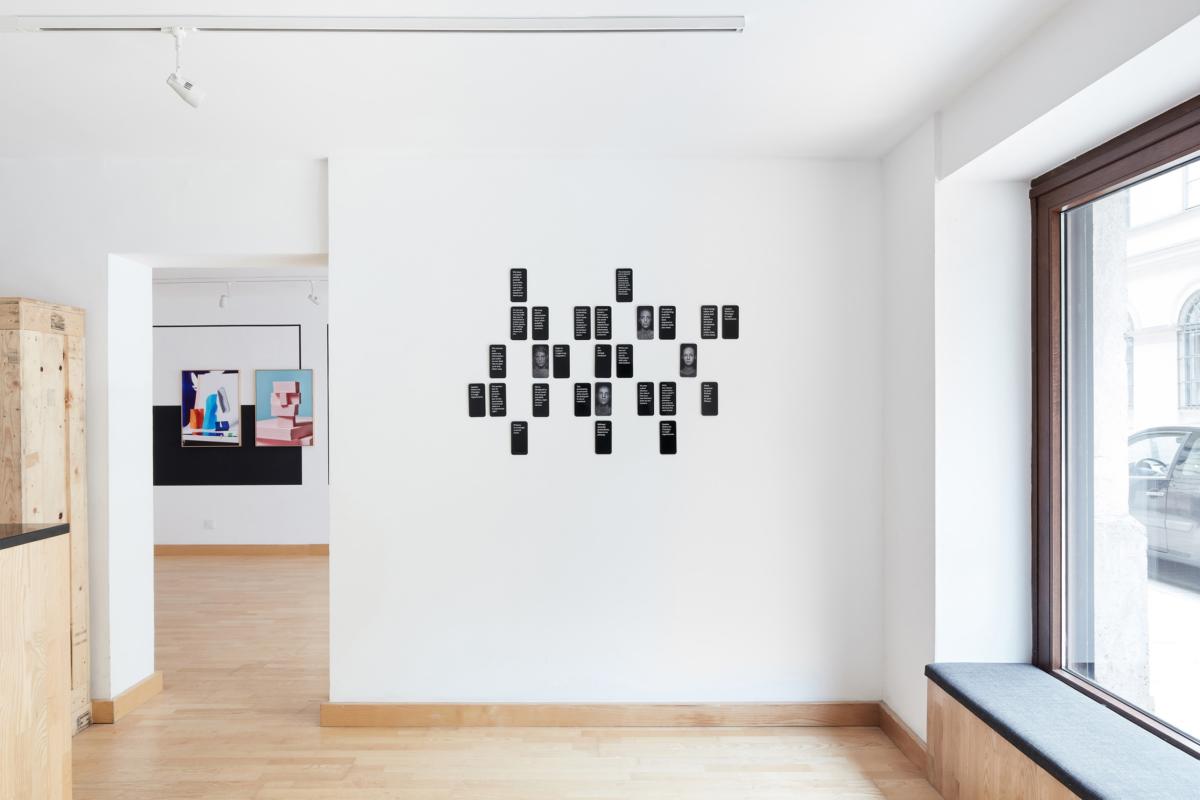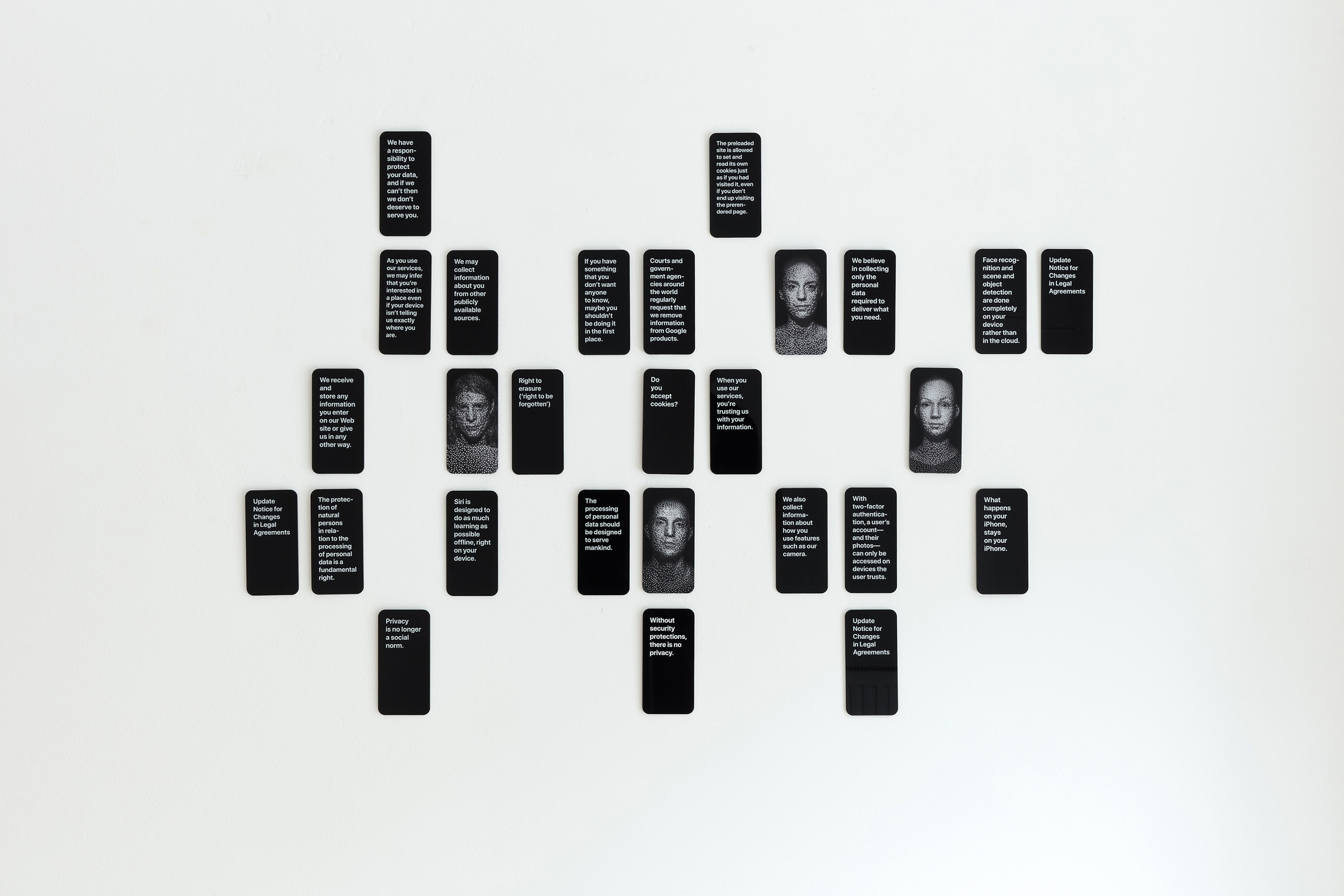![[EN/HU] ‘Do You Accept Cookies?’ by Dávid Biró at Trapez Gallery](https://blokmagazine.com/wp-content/uploads/2020/06/03-davidbiro-do-you-accept-cookies-exhibition-00025.jpg)
[EN]
Text by Vanda Sárai
There are only a few things, which we can consider so exclusively our own as our faces. One of the most basic elements of our identity is our most intimate, yet most public part. We barely ever cover this surface of our body, not even in public space, and in some countries, it is considered to be a crime to cover one’s face in particular spaces. Therefore it seems like it is our duty, to always be identifiable when we enter somewhere. But how far this duty of identification extends, and where does the monitoring of people change into illegal and authoritarian surveillance?
In his newest series, Do you accept cookies? Dávid Biró carefully examines the mechanism of face-recognition systems. The exhibition could hardly be more current, as the face is beginning to take on the role of fingerprint thanks to the latest technologies. More and more people are using phones that can be unlocked by face scanning, and cameras in the public space are increasingly using face detection for crime prevention and for law enforcement reasons.
For his newest series, Biró created face-imitating installations, in order to experiment on what the human eye recognizes as a face, and what appears to be a face according to the algorithm of mobile cameras as well. It is an interesting, instructive experience to examine these pictures through a camera of a mobile phone. And the montage consisting of typical sentences of the Privacy Policy by great tech-enterprises gives a great insight into how personal data has become the most valuable currency of the 21st century.
It is beyond doubt that the time has come for us to start dealing with our personal data much more carefully. Although we can decide to delete our profile from social media platforms, and not to accept cookies on websites, we cannot just simply log out from the face recognition system of public spaces.
Dávid Biró attempts to detect the blind spots of the technology of face recognition and to elude the system using various hacks. Meanwhile, he takes the ethical issue of observation and being the one who is observed into the discussion, which is unquestionably one of the most important dilemmas of our time.
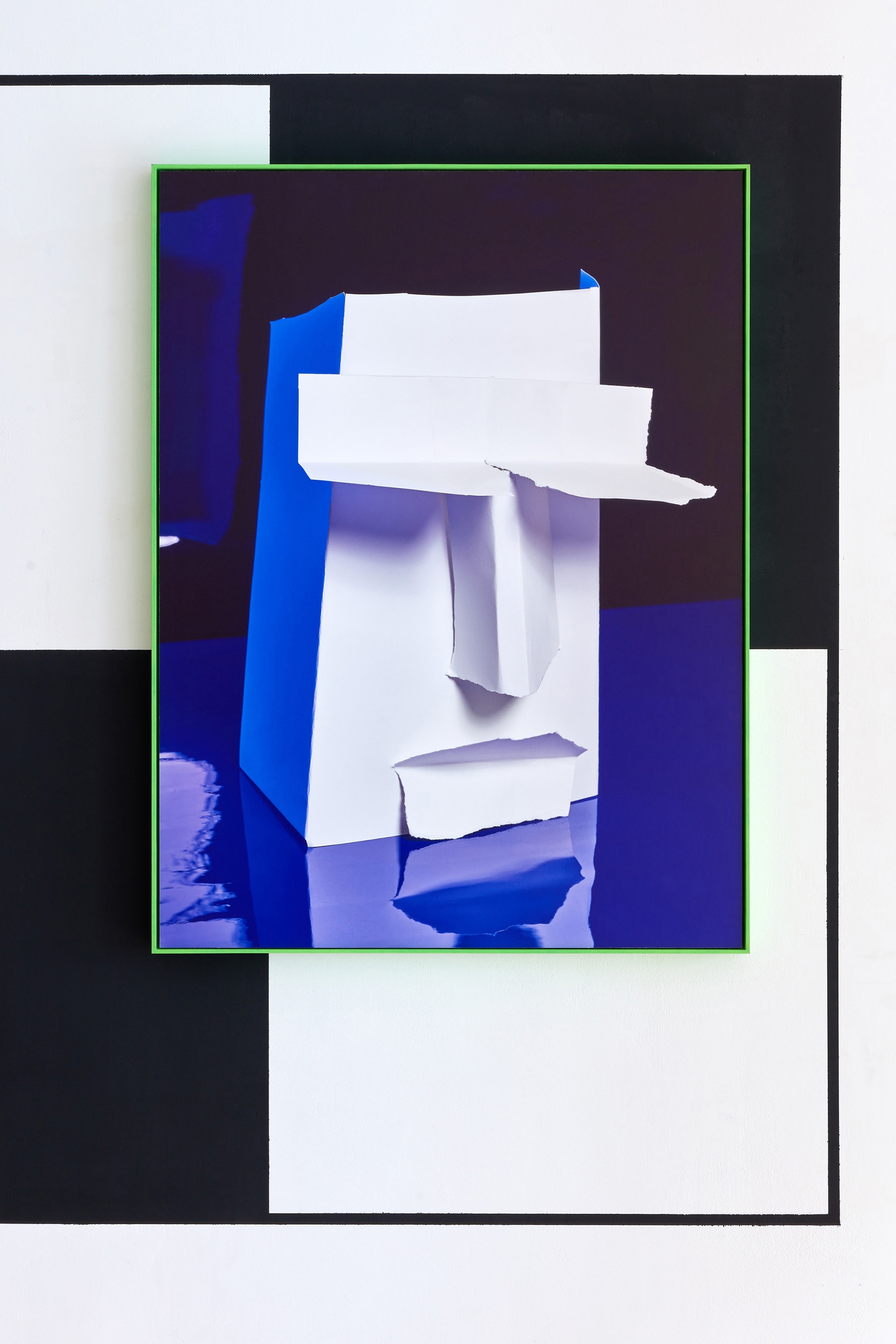



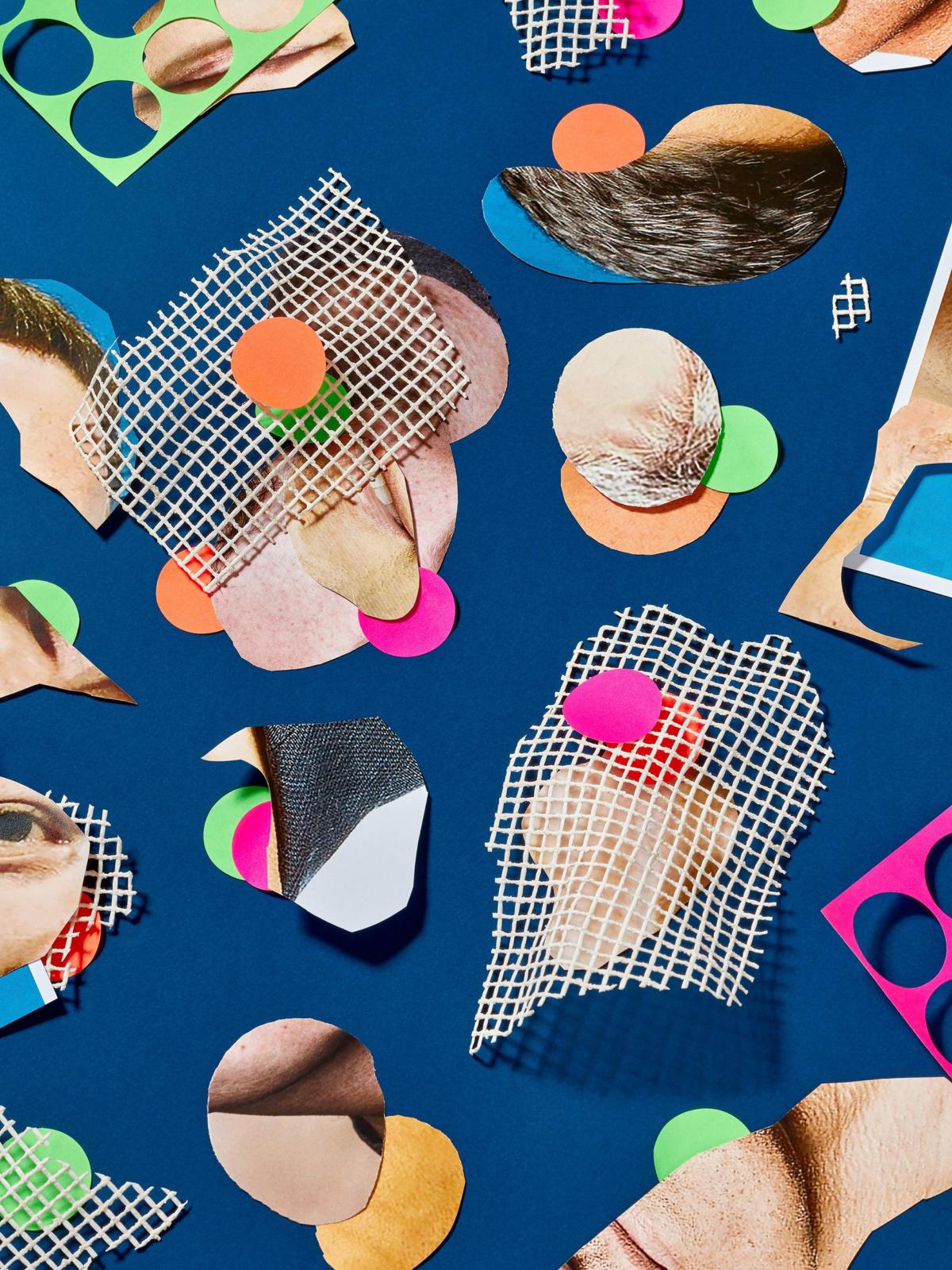


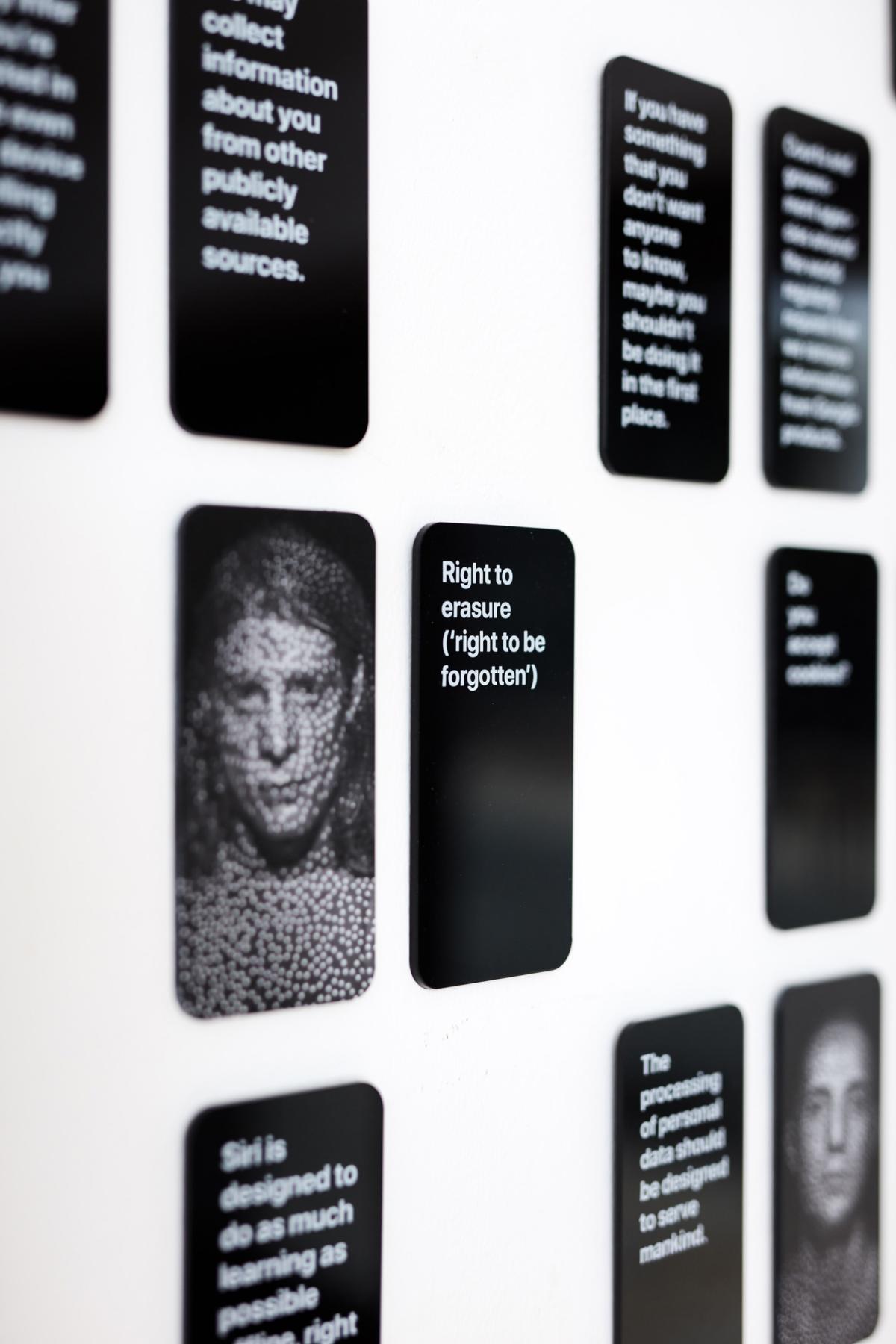
[HU]
Szöveg: Vanda Sárai
Kevés dolog annyira kizárólagosan a sajátunk, mint az arcunk. Identitásunk egyik legalapvetőbb eleme egyszerre a legintimebb és mégis legpublikusabb r.szünk: testünknek ezen felület.t szinte sosem fedjük el még a köztérbe lépve sem, sőt, egyes országokban az arc eltakarása büntetendő is. Látszólag tehát k.teless.günk beazonosíthatónak lenni, ha megjelenünk valahol. De meddig terjed vajon a beazonosíthatóság kötelessége, és hol csúszik át az emberek monitorozása jogtalan és autoriter megfigyelésbe?
Biró Dávid Do You Accept Cookies? című sorozata az arcfelismerő rendszerek mechanizmusait veszi górcső alá. A kiállítás nehezen lehetne aktuálisabb, hiszen a legújabb technológiáknak köszönhetően az arc kezdi átvenni az ujjlenyomat szerepét. Egyre többen használnak olyan telefonokat, amiket az arc beolvasásával lehet feloldani, a köztérre kihelyezett kamerák pedig egyre gyakrabban alkalmaznak arcfelismerést bűnmegelőzési és bűnüld.z.si okokra hivatkozva.
Biró legújabb fotósorozatához arcokat imitáló installációkat hozott létre, azzal kísérletezve, mit azonosít be az emberi szem arcként, és mi az, ami a mobiltelefonok kamerájának algoritmusa szerint is az. Érdekes és nem tanuls.gn.lküli játék egy telefon kamerájának szűrőjén keresztül végignézni ezeket a képeket. A nagy techvállalatok adatkezelési tájékoztatóinak jellegzetes mondataiból összeálló montázsa pedig kiváló látlelete annak, hogyan váltak a személyes adatok a 21. század legértékesebb valutáivá.
Mára kétség sem fér hozzá: elérkezett az adatainkkal való tudatosabb bánásmód ideje. Viszont míg az ember dönthet úgy, hogy letörli magát a közösségi media oldalakról és nem fogadja el a cookie-kat a böngészett weboldalakon, a köztéri arcfelismerésből nem lehetséges csak úgy kijelentkezni.
Biró Dávid többek között arra tesz kísérletet, hogy feltérképezze az arcfelismerés technológiájának vakfoltjait, és kül.nb.ző hackek segítségével kijátssza a rendszert. Mindeközben pedig a megfigyelés és megfigyeltnek levés etikai kérdéskörét hozza játékba, amely túlzás n.lkül korunk legfontosabb dilemmáinak egyike.
Imprint
| Artist | Dávid Biró |
| Exhibition | Do You Accept Cookies? |
| Place / venue | Trapéz Gallery, Budapest |
| Dates | 09 June – 18 September 2020 |
| Photos | Dávid Biró |
| Website | www.trpz.hu |
| Index | Dávid Biró Trapéz Gallery Vanda Sárai |


